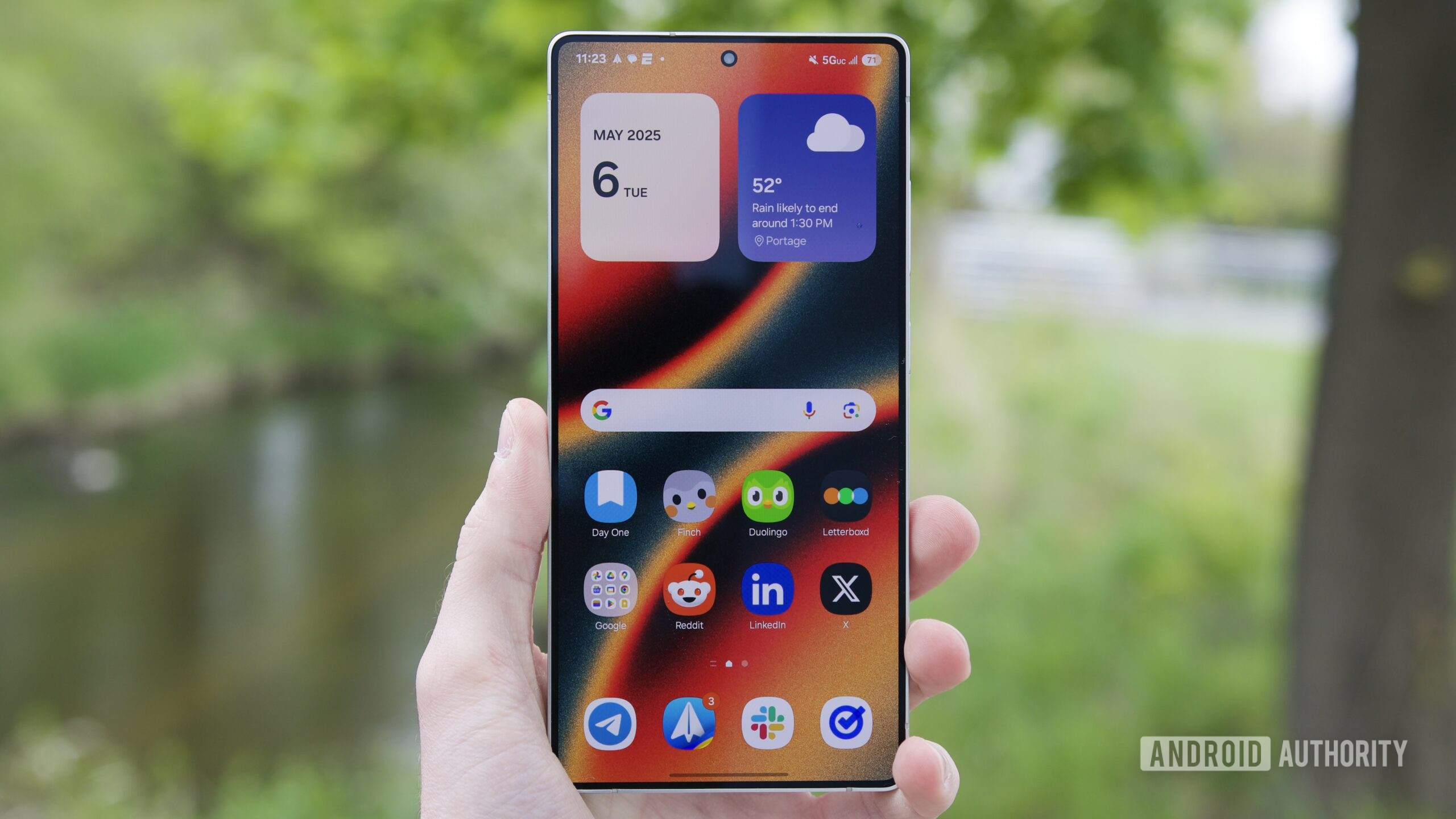Google hit with $314m fine for collecting data from idle Android phones without permission
-
This post did not contain any content.

Google hit with $314m fine for collecting data from idle Android phones without permission
Google has been ordered to pay $314.6 million to Android phone users in California for collecting data from idle phones.
Android Authority (www.androidauthority.com)
Doesn't sound like the suit was about the collection at all and just about the data transmission costing users mobile data usage.
Vague articles are vague.
-
That’s a rounding error for them.
That's 1/85 of the watch that Ramzan Kadyrov's son sported on his wedding.
Or one can just compare it to the share of Google's profits in California.
-
This post did not contain any content.

Google hit with $314m fine for collecting data from idle Android phones without permission
Google has been ordered to pay $314.6 million to Android phone users in California for collecting data from idle phones.
Android Authority (www.androidauthority.com)
So of the billions they made with that they have to pay a small fee.
Oh noes
Jail them!
-
Google in 2024: Net profit: $100 billion
The government: "here is a tiny fine that you can't even see in a microscope."
That does nothing to help anyone hurt by the actions.
-
So of the billions they made with that they have to pay a small fee.
Oh noes
Jail them!
Probably won't have to pay. They're appealing.
-
That's 1/85 of the watch that Ramzan Kadyrov's son sported on his wedding.
Or one can just compare it to the share of Google's profits in California.
Perhaps a post about this in politics? You've piqued my interest.
-
Probably won't have to pay. They're appealing.
They're appalling
-
Perhaps a post about this in politics? You've piqued my interest.
I don't know, it's Russian news mostly, just impressed plenty of people enough to say "yeah, this is bad, time to flee" (because this basically means that people in power don't expect anything even resembling rule of law in the next few decades ; some sort of thief feudalism, like the "political system" Gypsies have when left to themselves, and I don't hate Gypsies, but I also don't like a few things associated with their cultures).
-
This post did not contain any content.

Google hit with $314m fine for collecting data from idle Android phones without permission
Google has been ordered to pay $314.6 million to Android phone users in California for collecting data from idle phones.
Android Authority (www.androidauthority.com)
Oh noes
They're shivering in their boots
-
So of the billions they made with that they have to pay a small fee.
Oh noes
Jail them!
Fine needs to be much bigger. All the decision makers that approved it need to be removed and barred from working in the industry
-
This post did not contain any content.

Google hit with $314m fine for collecting data from idle Android phones without permission
Google has been ordered to pay $314.6 million to Android phone users in California for collecting data from idle phones.
Android Authority (www.androidauthority.com)
Break the law and pay 0.014% of your market cap, or 0.31% of their 2024 profit.
-
I don't know, it's Russian news mostly, just impressed plenty of people enough to say "yeah, this is bad, time to flee" (because this basically means that people in power don't expect anything even resembling rule of law in the next few decades ; some sort of thief feudalism, like the "political system" Gypsies have when left to themselves, and I don't hate Gypsies, but I also don't like a few things associated with their cultures).
I'm extremely interested. Perhaps somewhere on a niche instance?
-
I'm extremely interested. Perhaps somewhere on a niche instance?
It doesn't come up in search on Lemmy, at least everything by "Adam Kadyrov" is about some special forces training event or him beating someone.
If a link in Russian will do (Google Translate?), then https://www.gazeta.ru/social/news/2025/06/30/26158466.shtml , maybe?
The wedding also involved shooting into the air from a G-Wagon and polarized sunglasses (OK, that part is really not that strange, it's basic convenience and fashion everywhere around Caucasus ; just wanted to communicate the atmosphere).
-
This post did not contain any content.

Google hit with $314m fine for collecting data from idle Android phones without permission
Google has been ordered to pay $314.6 million to Android phone users in California for collecting data from idle phones.
Android Authority (www.androidauthority.com)

Alt text: a screenshot from final fantasy tactics with a character saying: “If the penalty for a crime is a fine, then that law only
exists for the lower class.” -
This post did not contain any content.

Google hit with $314m fine for collecting data from idle Android phones without permission
Google has been ordered to pay $314.6 million to Android phone users in California for collecting data from idle phones.
Android Authority (www.androidauthority.com)
So when are we all finally going to ditch Google/Apple and move on to actual FOSS phones like Librem5 or Fairphone?
-
So when are we all finally going to ditch Google/Apple and move on to actual FOSS phones like Librem5 or Fairphone?
When they are good.
Another problem I have is multifactor apps. Can I get duo on a Linux phone? Or banking apps? Some software sends notifications to the phone to log in on a computer, for example.
I'm sure I could get around it, but ultimately I just want a good camera.
-
When they are good.
Another problem I have is multifactor apps. Can I get duo on a Linux phone? Or banking apps? Some software sends notifications to the phone to log in on a computer, for example.
I'm sure I could get around it, but ultimately I just want a good camera.
Yeah, I need to know that Microsoft authenticator, duo mobile, all banking and trading apps, Venmo, and steam guard work on Linux. I know a lot of banking apps do, but if duo mobile doesn't, I'm locked out of my work.
-
This post did not contain any content.

Google hit with $314m fine for collecting data from idle Android phones without permission
Google has been ordered to pay $314.6 million to Android phone users in California for collecting data from idle phones.
Android Authority (www.androidauthority.com)
Years ago, when this policy was first being contemplated, someone at google plugged a number, likely larger than this, into a spreadsheet analyzing the cost/benefit of spying on their customers.
This is just post-activation operating expense from their perspective.
-
They're appalling
They're impaling
-
Years ago, when this policy was first being contemplated, someone at google plugged a number, likely larger than this, into a spreadsheet analyzing the cost/benefit of spying on their customers.
This is just post-activation operating expense from their perspective.
Google made 100 billion last year.
300 million is barely a blip.
The fine should have been 30 billion.
if the fines arent big enough to seriously hurt a company, Then the fines are not big enough to change their behavior.
They just become a tax on evil.






